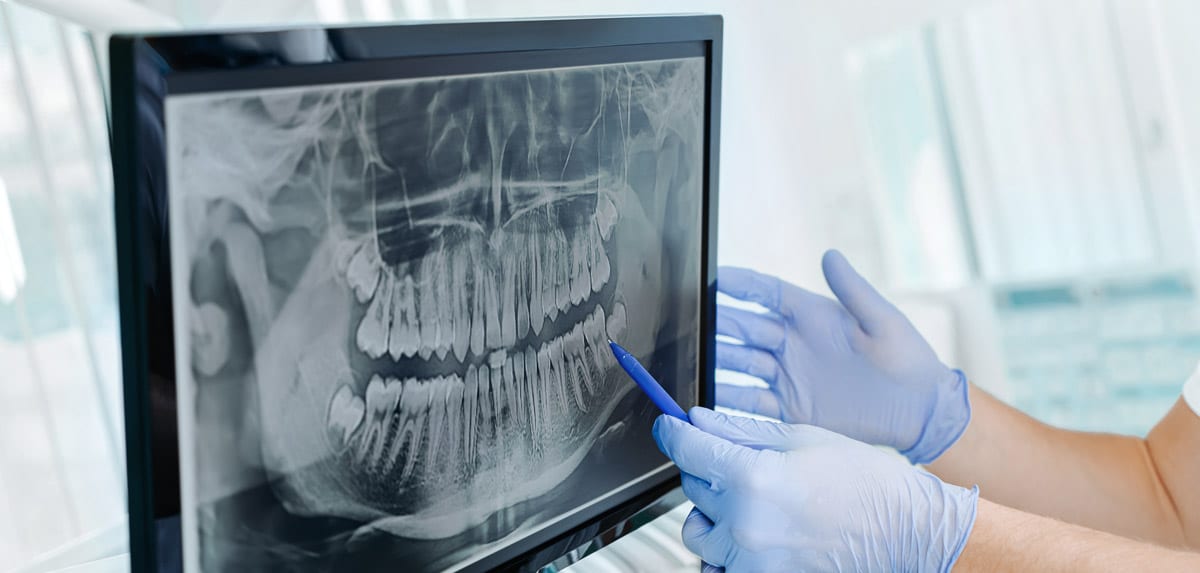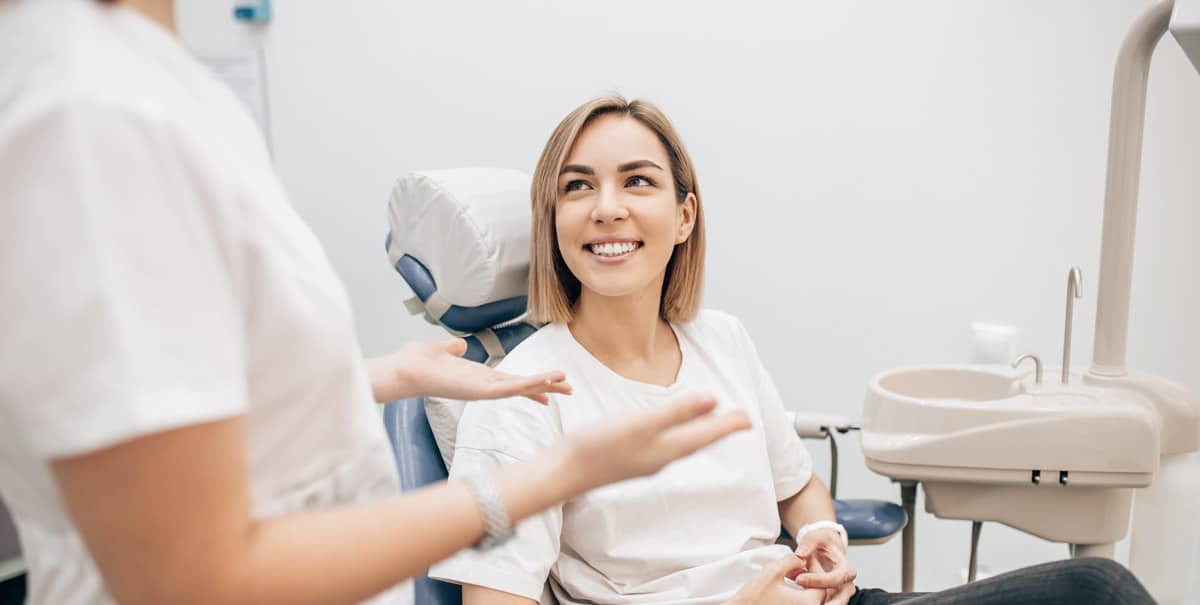Enquire about Root Canal Dentistry

What is root canal treatment?
Root canal treatment is a dental procedure designed to address issues affecting the inside of a tooth, specifically the pulp. The pulp is soft tissue located within the tooth and contains nerves and blood vessels. When this tissue becomes damaged or infected, it can lead to discomfort or an abscess.
Root canal treatment focuses on treating the inner structure and preserving the tooth’s function and overall health. When performed successfully, the treated tooth can remain in the mouth, free from infection, pain, or any symptoms previously associated with the condition.
When is root canal necessary?
Root canal treatment becomes necessary when the pulp of a tooth becomes infected or damaged. This typically occurs due to deep cavities, cracks, or trauma to the tooth. When the pulp is affected, it can lead to pain, swelling, or even an abscess. Learn how to prevent tooth decay and the need for a root canal in future here.
Problems that might require a root canal include:
- Severe toothache or throbbing pain
- Sensitivity to hot or cold temperatures
- Tenderness or pain when chewing
- Swelling or tenderness around the gums
- Discolouration of the tooth
- Abscess or pimple-like bumps on the gums
If left untreated, infection in the pulp can spread, potentially leading to tooth loss. Root canal therapy helps save the tooth by addressing the infection, preventing further complications, and preserving its function.

The root canal procedure
A root canal is one of the most common procedures done by dentists. The typical steps involved in a root canal procedure are:
Diagnosis and preparation
Our dentists will first examine the tooth and take X-rays to determine the extent of the infection or damage. Local anaesthesia is administered to ensure the area is numb and the patient feels comfortable during the procedure.
Accessing the pulp
The dentist creates a small opening in the tooth’s crown to enable them to get to the infected pulp inside.
Cleaning
Once it can be accessed, the infected pulp is carefully removed. The root canals are then cleaned thoroughly and shaped to get rid of any bacteria or debris that may be left over.
Filling and sealing
After this, the root canals are filled with a rubber-like material called gutta-percha. They’re then sealed to prevent reinfection. If there is going to be another restoration, a temporary filling is placed in the access hole to protect the tooth.
Other dental work to complement a root canal
After a root canal, restorative treatments are essential to restore the function and appearance of the treated tooth. The most common option is placing a dental crown, which covers the entire tooth to protect it from further damage. This is particularly important as root canal-treated teeth can become more brittle over time.
If the tooth structure remains intact, a dental filling may be used instead of a crown to seal the tooth and prevent future infections.
These restorative treatments ensure the tooth remains healthy, functional, and aesthetically pleasing, allowing it to last for many years after the procedure.
If the tooth structure remains intact after the procedure, a dental filling may be used to seal the tooth and prevent any future infections. The filling helps maintain the tooth’s function without needing a crown.
These restorative treatments ensure that the tooth remains healthy, functional, and aesthetically pleasing, allowing it to last for many years after the root canal procedure.
Finding a root canal specialist in Fulham
At Fulham Road Dental, our experienced team of endodontists are dedicated to providing high-quality, gentle care tailored to your needs. Using state-of-the-art equipment and the latest techniques, we ensure a comfortable experience throughout the procedure.
We understand that a root canal can feel intimidating, but our specialists prioritise your comfort and work to resolve your dental issues effectively. Whether you’re experiencing pain, sensitivity, or need a second opinion, we’re here to guide you every step of the way. Enquire today and let us restore your smile with professional, compassionate care.

Root Canal Treatment FAQs
How long does a root canal procedure take?
A root canal typically takes between 60 to 120 minutes per session, depending on the complexity of the case. While some treatments are completed in one visit, more complex cases may require two or more appointments. Factors influencing duration include the number of canals, infection severity, and whether additional procedures (such as placing medication inside the tooth) are needed.
During the appointment, your dentist or endodontist will carefully clean and seal the root canals to prevent reinfection. While the procedure itself is relatively quick, some patients may need extra time for numbing and preparation. Your dentist will provide a personalised treatment plan outlining the expected duration.
Is getting a root canal painful?
Root canal treatment has gained somewhat of a reputation as being a big deal but, in reality, it’s far from this. A root canal is not painful, as the procedure is performed under local anaesthesia, which numbs the tooth and surrounding area. Most patients feel little to no discomfort during the treatment. In fact, a root canal is designed to relieve pain caused by an infected or damaged tooth.
Modern dental techniques and anaesthetics have made root canals a routine and comfortable procedure. If you have dental anxiety, speak to your dentist about sedation options to help you feel more relaxed. Your comfort and care are always the top priority.
How long does a root canal last?
A root canal can last a lifetime with proper care. The procedure is designed to remove infection and preserve the natural tooth for many years. Once the root canal is completed, the treated tooth remains functional and can be used just like any other tooth. Many patients never experience further issues with their treated tooth and continue to use it comfortably for decades.
Regular dental check-ups help ensure that the tooth remains in good condition. With a good oral hygiene routine, a root canal-treated tooth can remain strong and healthy indefinitely. Advances in dental techniques have made root canal treatments highly durable, allowing patients to maintain their natural smile and bite for the long term without the need for further intervention.
How much does a root canal cost?
The cost of a root canal in a private practice in the UK varies depending on the tooth being treated and the complexity of the procedure. Other factors, such as the experience of the dentist, the location of the clinic, and the need for additional treatments like a dental crown, can also affect the price. Some practices offer payment plans to help spread the cost. A consultation with your dentist will provide a personalised quote based on your specific needs.
At Fulham Road Dental, root canal treatment costs between £950 and £1,200. There is a separate charge for a consultation. You can take advantage of our 0% financing plans to help you pay for this, should you need to.
Are there any alternatives to a root canal?
The main alternative to a root canal is tooth extraction, where the damaged tooth is removed completely. If the tooth is extracted, it may need to be replaced with a dental implant, bridge, or denture to restore function and appearance. These options can be more expensive and require more extensive treatment than a root canal.
In some cases, pulp capping or a temporary filling may help if the damage is minimal, but these are not long-term solutions for an infected or severely decayed tooth. A root canal is the best way to save your natural tooth and avoid more invasive procedures. Your dentist will discuss the best option based on your condition and oral health needs.
Can I eat after a root canal?
After a root canal, it’s best to wait until the anaesthesia wears off before eating to avoid accidentally biting your cheek or tongue. This typically takes a few hours. Once the numbness has gone, you are able to eat again. It’s wise to stick to soft foods for the first few days. Avoid anything hard, crunchy, or sticky, as your tooth may still be sensitive or temporarily weakened.
If a temporary filling was placed, try to avoid chewing directly on the treated tooth until a permanent restoration, such as a crown, is fitted. Your dentist will provide specific instructions based on your case. In general, you can return to your normal eating habits once your tooth feels comfortable and fully restored.
How can I prevent needing a root canal in the future?
To reduce the likelihood of needing a root canal, it’s essential to practice good oral hygiene. Brush your teeth twice a day with fluoride toothpaste, and floss to remove plaque and help prevent tooth decay. Regular dental check-ups mean your dentist will be able to catch issues like cavities or gum disease early. They can then treat these minor issues to stop them from progressing to the point where a root canal is necessary.
Avoid chewing hard foods or using your teeth for non-food tasks, as this can lead to cracks or damage. Additionally, wearing a mouthguard during sports or if you grind your teeth can help protect your teeth. A healthy diet with limited sugary foods can also reduce your risk of tooth decay.
Can a root canal fail?
While root canals have a high success rate, there is a small chance that the procedure can fail. Factors like an incomplete cleaning of the canals, re-infection, or the development of new problems within the tooth can lead to failure. In some cases, the root canal may not fully seal, allowing bacteria to re-enter and cause infection. Additionally, if the tooth fractures or if the restoration (such as a crown) is not properly placed, this can also lead to complications.
If a root canal fails, retreatment or even tooth extraction may be necessary. It’s essential to attend follow-up appointments and maintain good oral hygiene to reduce the risk of complications. Your dentist can assess the tooth and recommend the best course of action if issues arise.
What should I do if I experience pain after a root canal?
Some mild discomfort or sensitivity after a root canal is normal, especially in the days following the procedure. Over-the-counter pain relievers like ibuprofen or paracetamol can help manage this discomfort. However, persistent pain that lasts longer than expected may indicate an issue such as an infection, a problem with the filling, or a fracture in the tooth.
A follow-up appointment may be needed to check the tooth and ensure everything is healing properly. If you experience any swelling, fever, or worsening pain, seek immediate dental attention. Prompt treatment can prevent further complications and ensure the long-term success of the root canal.
Will my tooth look different after a root canal?
A root canal does not typically change the external appearance of a tooth. However, if discolouration occurs, internal whitening, a crown, or a filling may be recommended to restore its natural appearance. Your dentist will guide you on the best restoration options.
A crown can provide a natural look, matching the colour and shape of your surrounding teeth. In cases where a crown isn’t necessary, the tooth should look very similar to how it did before the procedure. Your dentist will guide you through the best options for restoring the appearance of your treated tooth.